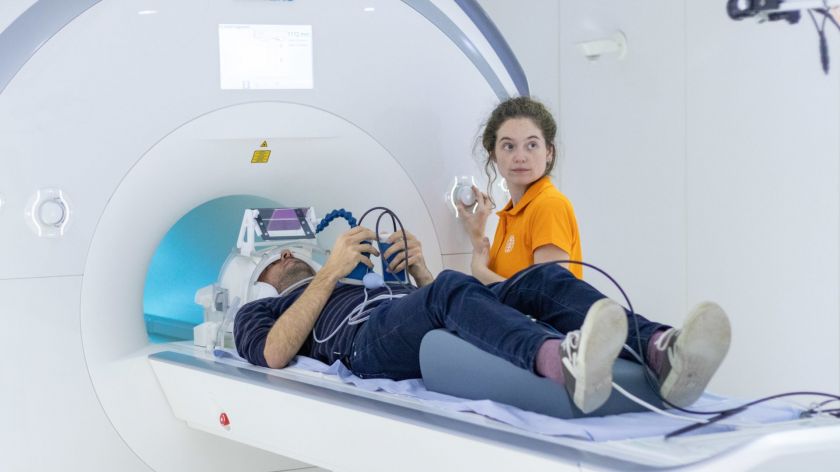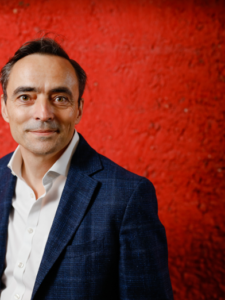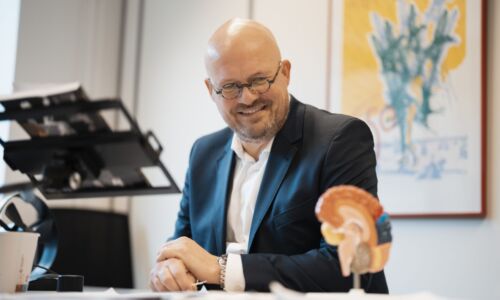Large-scale study of the thirty-something brain continues for another year
-
 Researcher Vivian Heuvelsmans places Vox editor and participant of the Healthy Brain Study in an MRI scanner. Photo: Rein Wieringa
Researcher Vivian Heuvelsmans places Vox editor and participant of the Healthy Brain Study in an MRI scanner. Photo: Rein Wieringa
It is safe to call Healthy Brain Study a mega-project. Hundreds of Nijmegen residents are taking part in the research into the thirty-something brain. The researchers hoped for a thousand test subjects, but that may not be possible. Nevertheless, the study is already producing tangible results, such as large grants for follow-up studies.
On social media, in regional neighbourhood newspapers and with street ads: the Healthy Brain Study is almost impossible to escape as a Nijmegen resident. People in their thirties – the age group targeted by the study – are called upon to participate in the study.
Six hundred participants
This has led to some six hundred participants signing up since Healthy Brain Study kicked off in September 2019. They are invited for three full days of tests and measurements. They also complete digital surveys, sleep with a sleep band for several nights and even have to submit stool samples. The result: a unique glimpse into the life and brain of the Nijmegen resident in their thirties.
‘This research has no equal’, says research leader and professor of Cognitive Neuroscience Guillén Fernández. ‘Compared to many large medical studies, we have few respondents, but the dataset we are building is enormously rich.’ Researchers from different disciplines can work with it.
‘It is difficult to get practically educated people involved in scientific research’
At the start of the study, the aim was a thousand participants. ‘We might not reach that number’, says Fernández. The culprit is covid. ‘We weren’t able to do experiments for a while.’ And when it was allowed again, people were reluctant to sign up as test subjects. To boost the number anyways, the duration of the study has been extended by a year, until the end of 2023.
Less representative
Also, the study group is not as representative of the Nijmegen population as hoped. The study subjects are above average in terms of being highly educated. They are also slightly more often women. ‘It shows how difficult it is to get practically educated people involved in scientific research’, says Fernández.
In doing so, he also puts his hand to his own heart. ‘As researchers, we are mainly used to working with students as test subjects. We have little experience designing research tasks for other populations.’ The complexity of the tasks, plus the large time investment test subjects have to make, makes the threshold for participation high.
But the collected data are still fantastic, argues Fernández, who himself specialises in human memory. ‘I don’t know anything about language skills, for example, but maybe that has a lot to do with our memory. We hope to make all kinds of links with these data.’
Grants
The study has already provided tangible results. By building on the data from the Healthy Brain Study, several researchers have already been awarded major grants, including professors Roshan Cools (ERC Advanced Grant) and Erno Hermans (Vici).
Translated by Jan Scholten.




